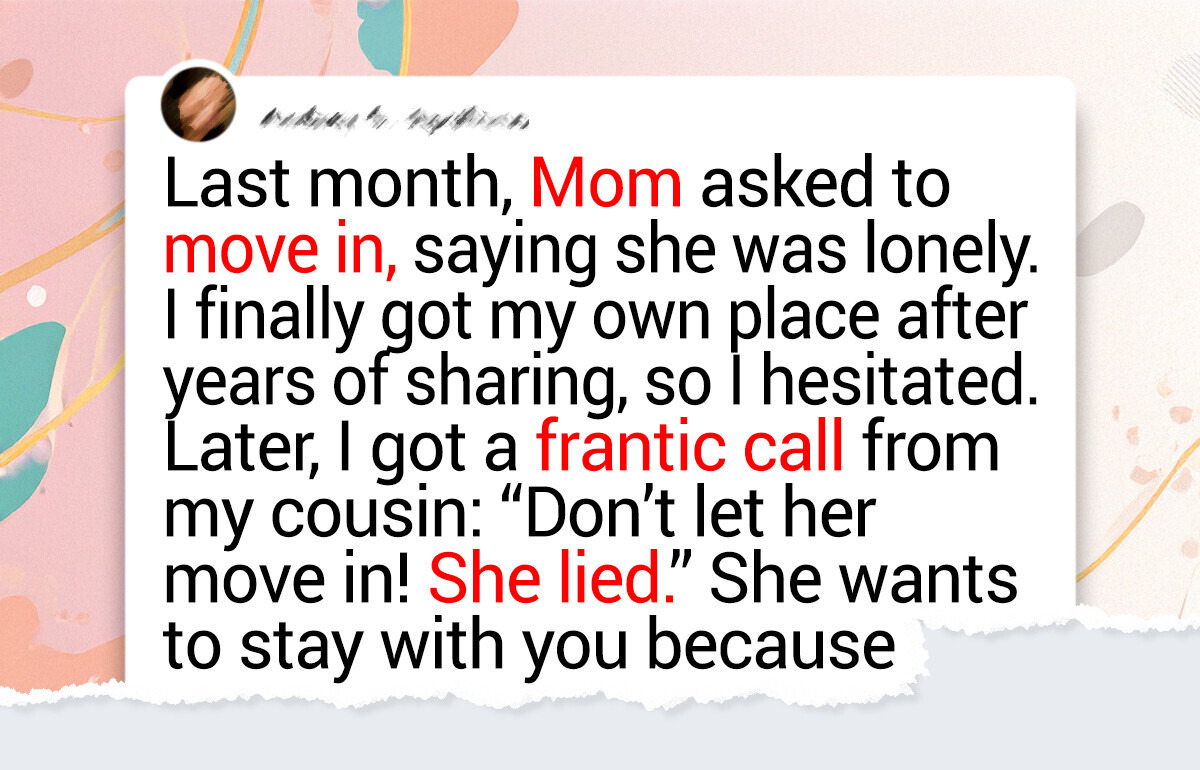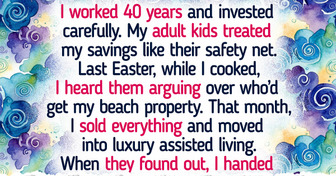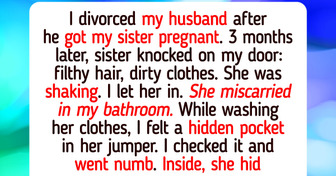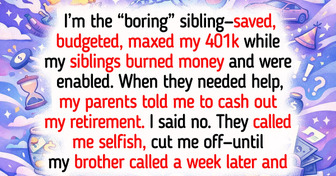You have the right to live your life without trying to please everyone else. If you let her move in I'm pretty sure you will regret it and at this point in your life you just need to worry about yourself. I had to help a friend that had a mother that pulled the pity crap on her daughter and it came back to being the worst mistake she could have EVER made. Within 2 weeks she was changing paint colors, throwing her elderly dog outside,throwing out her food,and the list goes on and on. Now it's like she's a teen again with no life of her own. Even though you love your mom you have reached a point where you need to live your own life your way and explain to your mom that you've reached a point where you just need time for yourself and keep your space for yourself. My friend had one hell of a time fighting for her independence and even though she ruffled some feathers it was the only way to be able to live her own life. Just learn to say I love you but NO MEANS NO!!!!! If you give in you may never get her out and you deserve to be able to live your life your way not having mommy looking over your shoulder. Best of luck to you. Just say NO!!!!
I Absolutely Refuse to Let My Mom Move in After Discovering Her Real Motive

Sometimes mothers cross boundaries that are hard to ignore. Emily shared her story of how her mom’s move-in request turned into a power play.
Here’s the story:
Hey Bright Side!
Last month, my mom asked if she could move in with me. She said she was lonely and wanted to be closer. I hesitated. After years of sharing tiny apartments with roommates, I finally had my own space. I told her no, thinking she’d get it, but instead she went totally silent. No calls, no texts.
Then little things started happening. She called my neighbors to “check in” on me, sent long texts picking apart how I cook and clean, and even dropped hints that I wasn’t managing my money well. At first, I thought, okay, maybe she just misses me. But the more it went on, the more it felt like she didn’t actually want company. She wanted control.
It really hit me when my cousin called out of nowhere. She said Mom had been telling people I was “neglecting my responsibilities” and that moving in with me would help me “get back on track.” I told my cousin about the guilt I was feeling, and she just said, “Don’t let her move in, she’s not being honest with you.” And she was right.
I was angry, but more than that, I finally saw things clearly. My life is mine. I’ve spent years trying to keep her happy, and I just can’t do it anymore at the expense of myself. I blocked her calls and stopped replying to the messages.
It hurts because I love my mom. But I also love my independence, and I’m not giving that up out of guilt. I’m learning that saying no doesn’t make me a bad daughter, it just makes me human.
Emily H.
Thank you, Emily, for sharing your story with us. Sometimes, when our boundaries are pushed, no matter by whom, it can lead to conflict and tension. Setting limits is hard, but it’s necessary to protect your own life and independence.
First of all, protecting yourself doesn’t make you a bad daughter.
It’s hard to tell a parent no, especially when love and guilt are tangled together. But your life, your home, and your choices belong to you. Saying no doesn’t mean you love less. It means you love yourself enough to keep your life intact.
Not all “help” comes from a good place.
Sometimes concern is mixed with control, and it can be hard to spot. When someone’s actions make you feel pressured or criticized, it’s okay to pause and see what’s really behind it. Recognizing a power play early can save a lot of pain and confusion.
Motherly love can sometimes come across imperfectly.

Don't ever let her move in she will take over and never leave. You will be miserable. You are doing the right thing. But be prepared this isn't over she will do something drastic. Make sure your landlord knows she might try to reach out to them , to get you kicked out. Make sure your boss knows that she might try to get you fired. People who lose control will do ANYTHING to get it back.
Starting independent lives is hard for both of you. Sometimes your mother’s love shows up in ways that feel controlling or overbearing. It’s okay to feel frustrated, but try to understand her perspective too. You can stay firm in your boundaries while recognizing that she’s figuring out her own way of navigating this new chapter in life.
It’s okay to feel a mix of love and frustration.
Relationships with parents can be complicated, especially when you’re both learning new ways of relating. Feeling anger, guilt, or sadness doesn’t make you a bad child, it just means you care. Allow yourself to experience those emotions fully and give yourself permission to take care of your own well-being while still holding space for love. The next steps will come naturally.
Family love can be messy and complicated but it is still love. Emily’s story shows that caring for yourself does not mean loving less. You can hold onto your independence while still showing compassion for those you love. Sometimes boundaries within families can be crossed in even more unexpected or twisted ways, as seen in this story about a mother’s actions while babysitting.
Comments
Related Reads
I Refuse to Forgive My Wife for What She Did to My Son

I Refuse to Follow My MIL’s Family Rules During My Vegan Pregnancy, and Now She’s Furious

I Refuse to Leave an Inheritance to Children Who Treated Me Like a Cash Cow—So I Made One Final Decision

10 Times a Painful Truth Turned Into Kindness That Saved a Soul

I Refuse to Keep Visiting My Husband’s Family—I’m the Breadwinner, Not Him

15 Moments That Prove Kindness and Mercy Are Quietly Saving the World

I Lost a $120K Job Over a Ridiculous Interview Test

10+ People Who Went on Holiday for Comfort but Got a Crazy Story Instead

I Refuse to Be the “Safety Net” for My Siblings Just Because I’m the Only One With a 401k

My Cousin Uninvited Me to Save Money—My Petty Revenge Was Absolutely Worth It

11 People Whose Small Acts of Kindness Turned Tears Into Smiles

I Refused to Talk to My Parents After They Chose My Ex-Wife Over Me


